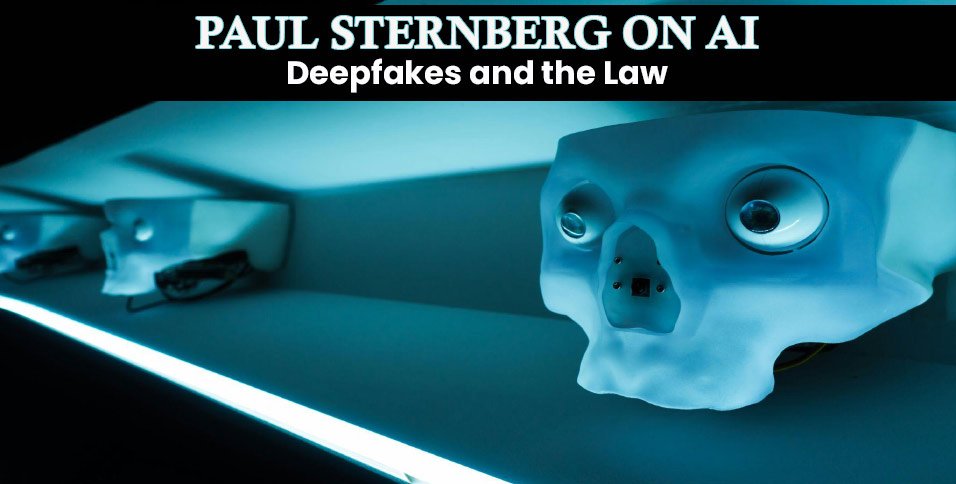Houston, Texas attorney Paul Sternberg has spent decades helping local clients overcome their legal battles. His specialty is helping those threatened or harmed by online defamation attacks.
Whether you’re a fan or not, artificial intelligence (AI) use continues to expand. This means that “deepfake” technology is also a growing trend. If you’re unfamiliar with the term, attorney Paul Sternberg explains that “deepfake” refers to synthetic media in which a person in an existing image or video is replaced with someone else’s likeness using AI technology. In essence, a deepfake is an AI-created digital fabrication.
Unfortunately, deepfakes are very realistic, making it difficult for viewers to distinguish between what’s real and what’s not. Sternberg says that the technology has led to impersonation, fraud, blackmail, and the spread of misinformation and propaganda on the internet.
How Deepfakes Are Created
AI is at the heart of deepfake technology. Specifically, a subset of machine learning called “deep learning” creates deepfakes (hence the name). Sternberg says this involves superimposing existing images and videos onto source images or videos using a deep learning technique.
Sternberg also explains that deepfakes are created using a large amount of data, often including photos, soundbites, or videos. Because a greater amount of data allows for more convincing deepfakes, celebrities, politicians, and other public figures are the most common targets. Even more problematic, there are now apps and online services where users can create deepfakes with minimal knowledge of the technology behind it.
Deepfakes and Legal Concerns
It probably comes as no surprise that deepfakes can pose various legal concerns, some of which are highlighted below. Sternberg says the problem is that current laws must adapt to this rapidly changing and ever-growing technology.
Ethics and Privacy
Because deepfakes are so realistic, they present new challenges to existing privacy laws. According to Sternberg, current privacy laws simply don’t have the framework to address such advanced technological manipulations. Though privacy laws vary from state to state, many jurisdictions require consent from others to use an individual’s likeness or personal data. However, enforcing privacy laws with anonymously created deepfakes is already proving to be challenging.
Defamation law
Deepfakes using an individual’s likeness may lead to significant damage to their reputation as well as considerable emotional distress. Sternberg notes that if the deepfake falsely represents an individual in a defamatory manner, defamation law may offer some help. However, first the victim will have to prove that the deepfake content is false, which may not be easy.
Cybercrime and harassment
According to Sternberg, cybercrime laws may provide some legal recourse for deepfakes, especially if they involve hacking or unauthorized access of personal data. If deepfakes are used to harass or stalk individuals, existing laws in this realm may also provide some legal recourse.
Obscenity and pornography laws
Sternberg also notes that laws against non-consensual pornography can be applied to deepfakes if explicit media was created without the subject’s consent. But again, enforcing laws such as these can be complicated by jurisdictional issues and the anonymity of online content distribution.
In Summary
Unfortunately, the current legal system was not created with AI and deepfake technology in mind. Sternberg stresses that significant legal gaps exist, which allow people to be targeted by this technology and sometimes unable to seek legal action against the person who created the deepfake.
As courts worldwide begin to deal with deepfake cases, developing legal precedents and new case law will be vital. This will be the only way to help deepfake victims, whether they’re well-known or not, navigate these uncharted waters.
About Paul Sternberg
Paul M. Sternberg owns a private practice law firm in Houston, Texas. He concentrates his practice in the areas of internet defamation law as well as business law. Mr. Sternberg is a graduate from the A.B.Freeman School of Business at Tulane University in 1987, and a 1996 graduate from South Texas College of Law in Houston. Mr. Sternberg, a seasoned entrepreneur, is the author of SECTION 230, FREE SPEECH AND THE INTERNET. 10 years of experience on representing clients who have been the victims of defamatory cyber-attacks. Mr. Sternberg has developed a reliable blueprint in securing positive solutions in most cases. He has shared his professional knowledge with FOX NEWS and many other media outlets to discuss internet defamation. He is a frequent speaker to attorneys and community groups. He may be reached at www.TheDefamationAttorney.com or his office at 713-789-8120.
THIS ARTICLE SHOULD NOT BE RELIED UPON AS LEGAL ADVICE
Attorney Paul Sternberg, of Houston, Texas, states and declares that the above text is not offered as legal advice, but is provided as general information. The information contained within may not be suitable for all individuals or situations. No attorney-client relationship is created or implied by the provision of this information, nor does the aforementioned make any warranties, whether expressed or implied, of any kind. To discuss a particular situation in more detail, please contact attorney Paul Sternberg for a consultation by calling 713-392-4322.
Also Read: Where Can You Find Resources to Humanize AI Text?















